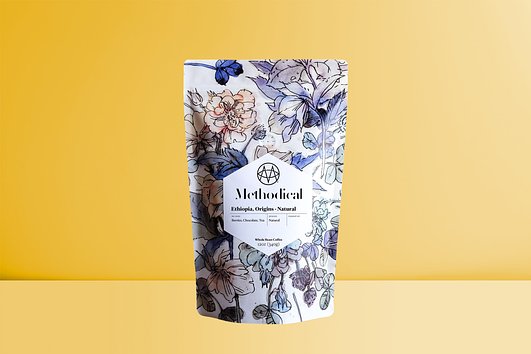How Is Coffee Made?
Matthew Berk
• April 05, 2021 — last updated June 13, 2021
Ever wondered where coffee beans come from and how coffee is actually made before it makes its way into your cup? Read on to learn all about coffee production, including processing and roasting methods and why they're so essential to quality coffee.
Where Do Coffee Beans Come From?
Coffee comes from coffee (coffea) plants, which typically grow and thrive in warm, tropical climates; this is why much of the world's coffee derives from countries such as Brazil, Vietnam, Colombia, Indonesia, Ethiopia and Guatemala. Coffee plants sprout a cherry-like fruit (typically red or purple in color), and inside the fruit is where the coffee beans—of which there are four variations—grow.
Different Types of Coffee Beans
- Arabica Beans
- Robusta Beans
- Liberica Beans
- Excelsa Beans
Coffee Production
After the coffee fruit is fully ripe and picked, coffee must be processed to remove the outer layers of the coffee seed. Processing methods are distinguishable regardless of the region where coffee is grown. The two dominant processing methods are the washed and the natural methods.
Washed Processing
Washed processing is a method that's used in areas where there is access to abundant water. After the coffee cherry is picked, a mechanized process removes its outer skin. This exposes a sweet, sticky layer known as the pulp. At this stage the pulp is either removed by a depulper or dropped into a fermentation tank where natural enzymes, some bacteria, and other microbes remove it.
Coffee that's been washed correctly will tend to be bright, with subtle fruit notes, and uniform in taste and color. It will possess less depth of body than the same coffee processed using a natural method, but has a better chance of being consistent bean to bean and thus cup to cup.
Natural Processing
The natural process is so named because it's the original ‘natural’ way of producing coffee, dating back to the first commercially produced beans from Yemen for the Ottoman Empire. Instead of being picked, pulped, and washed, these cherries are picked from the plant and then placed onto a drying bed. When the cherry dries, it's easily stripped off and only the bean remains. These coffees are not as consistent as coffees processed using the washed process, and can suffer quality problems if not sorted properly. However, they possess a subtle tartness that we detect as fruit or berry while they temper acidity. They also result in earthiness and body in a coffee that can be perceived in depth and complexity. Natural coffees that have not been processed properly possess a fermented, almost sour, wine-like taste.
Coffee Roasting
Coffee, being a seed and an agricultural product, needs to be roasted to prepare it for consumption. This process uses heat and time to turn the green and raw seed into a brown or black coffee bean. Generally, a roast lasts from between 10 to 15 minutes and undergoes a wide range of chemical reactions to impart flavors and aromas on the finished product. Lighter roasted coffees will possess more ‘terroir’ notes such as floral tea, fruit, and berry. Darker roasts will be smoky, bittersweet chocolate. As the roast progresses form light to dark, the characteristics of the coffee will change. To use sweetness as an example, a light roast will begin with sugarcane, progress to raw sugar, caramel, and onward towards maple syrup.
Every roaster puts their unique spin on coffee. The science is the roaster attempting to repeat their recipe, fight variables, and maintain a consistently delicious product for you to enjoy. This is the art of coffee roasting.
This guest post was written by Andrew Russo, owner of Craft Coffee Institute. Craft Coffee Institute conducts a unique and innovative program that gives students the opportunity for peer learning, hands-on experimentation, and live lectures from the comfort of their own homes. They are committed to helping all levels of coffee professionals and enthusiasts expand their knowledge of the coffee as a plant, a roast, and a beverage.
We want to help you make better coffee at home. Our recommendations are our own, and never sponsored. If you see something you love and buy it through our links, we may receive an affiliate commission (thanks for that!).







